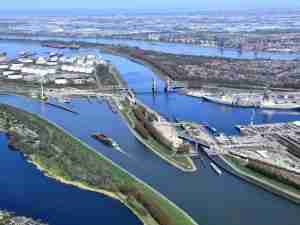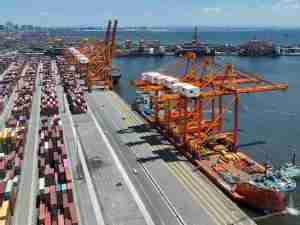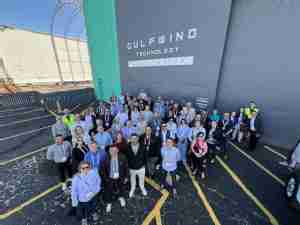Raw materials and goods imported through the Port of Long Beach such as steel, electronic parts and organic chemicals play a vital role in the creation of jobs -- more than 220,000 well-paying manufacturing jobs in the US -- a new study has found.
Economists at California State University Long Beach, traced four types of raw materials and semi-finished goods -- paper, iron and steel, electronic parts, and organic chemicals -- looking at employment impacts. The research team presented its findings to the Board of Harbor Commissioners on Monday, August 24.
Researchers found that manufacturers in the United States rely upon the Port to import their materials and parts, and to export their finished products. The researchers were able to document 220,000 manufacturing jobs and 22,000 wholesale trade jobs associated with these imports of raw materials and parts.
"Without access to parts and raw materials at competitive prices, these firms would not be able to do what they do. And the Port fulfills a key role in allowing firms to have that access," said Dr. Lisa Grobar, an economics professor at CSULB and one of the lead researchers on the study.
CSULB economists led a team of students in building case studies on the four targeted commodities in 2007, looking closely at the employment impacts once the goods were imported.
The report, titled "Forward Linkages," also found that a significant portion of the products made from materials imported through the Port are then exported through the Port of Long Beach.
"It's important to recognize that raw materials imported through the Port of Long Beach play a major role in supporting local manufacturing and trade jobs," said Port of Long Beach Executive Director Richard D. Steinke. "Most people think of imported items as finished goods that head directly to store shelves, but that's only half the story."









